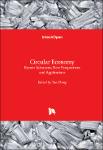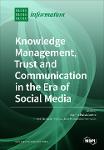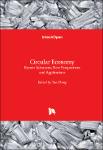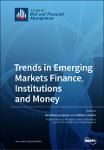Search
Author
- Marina, Dabić (3)
- Christa, Sys (2)
- Domingo, Ribeiro-Soriano (2)
- Gomez Albrecht, Maria (2)
- next >
Subject
- kinh tế (10)
- SDGs (4)
- Economic History (3)
- Economics (3)
- next >
Date issued
Has File(s)
- true (306)
Search Results
This open access book provides an in-depth examination of Japan's policy responses to the economic challenges of the 1980s and '90s. While MITI's earlier role in promoting rapid growth has been addressed in other studies, this volume, based on official records and exhaustive interviews, is the first to examine the aftermath of rapid growth and the evolution of MITI's interpretation of the economy's changing needs. Covering such topics as the oil shocks, trade conflict with the United States, and the rise and collapse of the so-called bubble economy, it presents a detailed analysis and evaluation of how these challenges were interpreted by government officials, the kinds of policies that were enacted, the extent to which policy aims were realized, and lessons for the longer term. Thi... |
Nowadays, the restriction of resources and the environment is very severe. A circular economy is the only way to sustainable development, but how this works still needs more exploration. The series of studies carried out by the author are described in detail in this book. |
Since the mid-1980s, Japan, which was a leading competitor in the world’s manufacturing sector, tried to transform itself to an economy with domestic demand-led mature growth. The ensuing bubbles, busts, and banking crisis, however, left the country chronicle deflation and stagnation. This book analyzes why the Japanese authorities could not avoid making choices that led to this outcome. This report describes policy responses to the boom, bust, crisis, and recovery Japan experienced during the two decades from 1986 to 2004. One hundred and fifty years ago, Japan started to westernize itself after the two centuries of isolation. Since then, it has made two miracles and two major mistakes. |
This open access book provides a readable narrative of the bubbles and the banking crisis Japan experienced during the two decades between the late 1980s and the early 2000s. Japan, which was a leading competitor in the world’s manufacturing sector, tried to transform itself into an economy with domestic demand-led mature growth, but the ensuing bubbles and crisis instead made the country suffer from chronicle deflation and stagnation. The book analyses why the Japanese authorities could not avoid making choices that led to this outcome. The chapters are based on the lectures to regulators from emerging economies delivered at the Global Financial Partnership Center of the Financial Services Agency of Japan. |
This book presents the main challenges and opportunities posed by trust, knowledge management, and communication in the social media age in a manner relevant to both practitioners and scholars. The book is also useful for companies and organizations to leverage trust, knowledge management, and communication for an optimal course of action. This book aims to bring together the theory and practice of trust, knowledge management, and communication in the era of social media. The book provides a theoretical and practical background related to trust, knowledge management, and communication in the era of social media. The editor believes that the collection of articles can be relevant to professionals, researchers, and students’ needs. The authors try to diagnose the situation and show th... |
This collection highlights a key metaphor in contemporary discourse about economy and society. The contributors explore how references to reality and the real economy are linked both to the utopias of collective well-being, supported by real monies and good economies, and the dystopias of financial bubbles and busts, in which people’s own lives “crash” along with the reality of their economies. An ambitious anthropology of economy, this volume questions how assemblages of vernacular and scientific realizations and enactments of the economy are linked to ideas of truth and moral value; how these multiple and shifting realities become present and entangle with historically and socially situated lives; and how the formal realizations of the concept of the “real” in the governance of ec... |
Nowadays, the restriction of resources and the environment is very severe. A circular economy is the only way to sustainable development, but how this works still needs more exploration. The series of studies carried out by the author are described in detail in this book. |
This open access book focuses on the issue of sustainability standards from the perspective of both global governance frameworks and emerging economies. It stems from the recognition that the accelerated pace of economic globalization has generated production and consumption patterns that are generating sustainability concerns. Sustainability standards (and regulations) are increasingly being used in a bid to make global consumption and production more sustainable. Given the dense inter-connectedness of economic affairs globally, the use of sustainability standards has become a concern of global governance, who face the challenge of achieving a balance between the use of standards for genuine sustainability objectives, and not allowing them to turn into instruments of protectionism ... |
Customer centricity is about organizational transformation making the customer the focus for business decisions, processes, product development, services, and procedures. Some companies purport to be customer centric but they fall short in connecting this concept throughout all functional areas of the business. While it is important to offer superb customer service, being customer centric is far more than that. It's about mapping the customer journey to discover customer needs and wants, what's working and what is not, then taking action to improve the customer experience. Customer loyalty is built through providing exceptional customer experiences. This in turn increases revenues through positive company image, referrals, and increased customer lifetime value. Most organizations... |
Since the waves of financial liberalization in the 1980s, emerging market economies have been accessible to foreign investors. Altogether, they contributed up to 43.8% of the global GDP in 2018, and many of them, such as China, India, Bangladesh, Philippines, Myanmar and Vietnam from 2010 to 2019, are among the fastest-growing economies in the world. Given the high economic growth, the assets issued by companies in emerging markets are viewed as a new set of investment opportunities for global investors and fund managers who seek to improve the risk-adjusted performance of their portfolios. In addition to their risky profile due to the lack of transparency as well as stable and matured institutions, their recent development path faces a number of challenges arising not only from the... |










